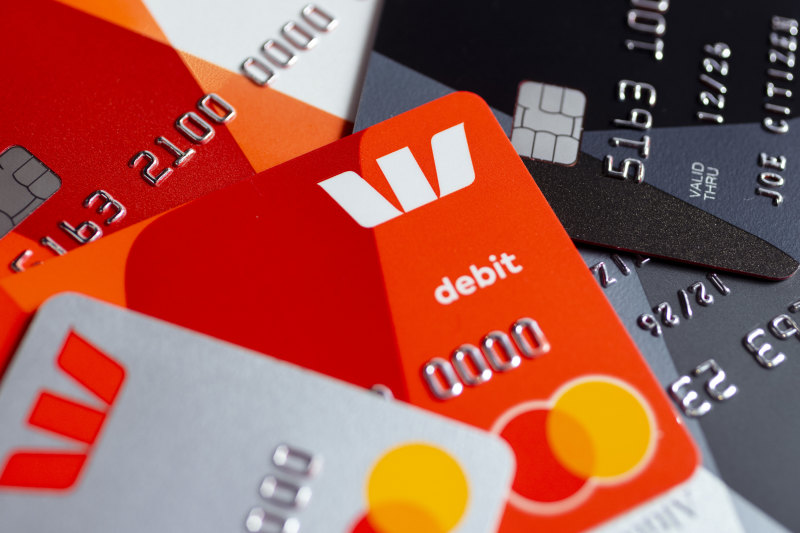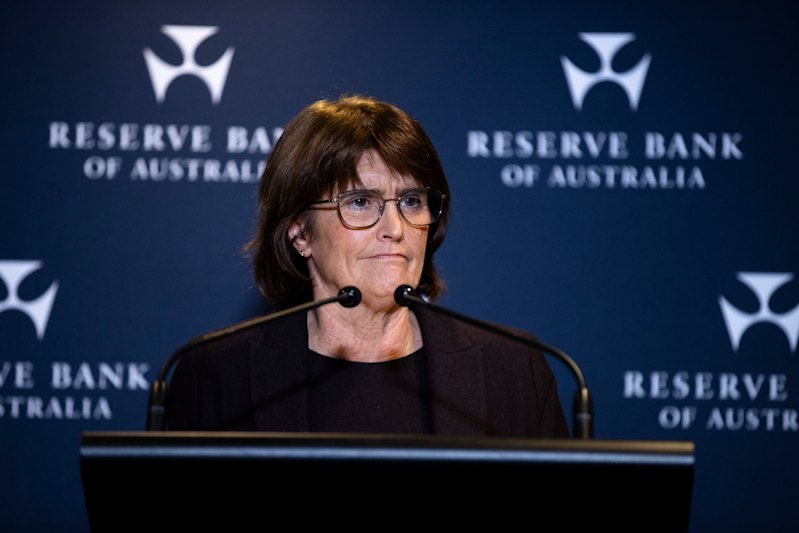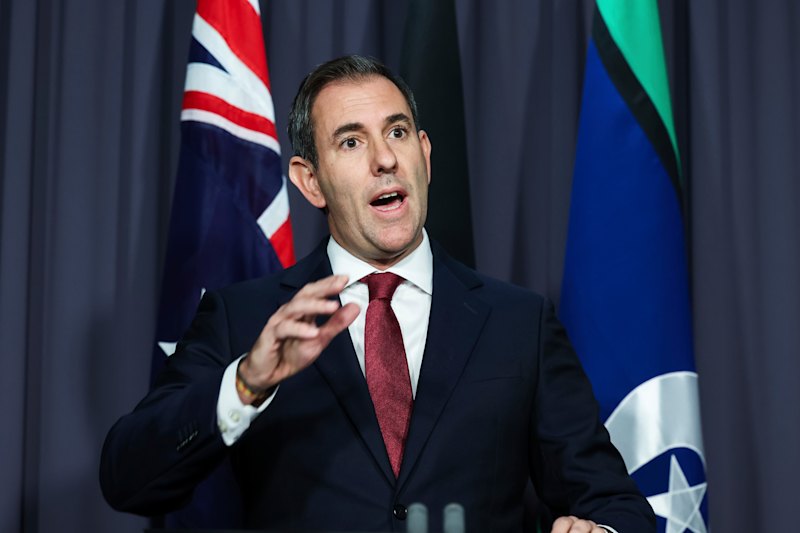
Businesses would be banned from applying surcharges to all credit and debit card transactions from July next year under a Reserve Bank proposal that could save Australian consumers close to $1.2 billion annually but which business representatives have warned could lead to job losses.
On Tuesday, the RBA released its review into card surcharges, proposing a suite of reforms aimed at lowering fees for both consumers and merchants, including a lever to force credit card companies and financial players – involved higher up the payments chain – to publish details of the fees they impose on businesses.

The RBA’s proposal to stop fees on credit and debit card transactions, which will now be subject to an industry consultation window, goes further than reforms the Albanese government had flagged last year, when it said it wanted to ban surcharges on debit cards.
Proposed surcharge ban and other changes
For years, businesses have been able to apply surcharges to credit and debit card payments, but the amount is not supposed to exceed what it costs a business to process the payment. While average surcharges have been about 0.7 per cent of a transaction, they have ranged between 0.1 per cent to 10 per cent.
There are currently 16.8 million credit and charge cards and 48.5 million debit cars registered in Australia. Some cards are also combination cards, offering users credit and debit functions.
In its preliminary view, the RBA has proposed banning all surcharges for consumers using eftpos, Visa and Mastercard – applying its rules to American Express would rely on separate reforms to the payments act currently on the horizon – noting “surcharging is no longer achieving its intended purpose of steering consumers to make more efficient payment choices”.
“Avoiding surcharges has become harder as cash usage has declined. Businesses are increasingly charging the same surcharge rate across debit and credit cards and there are significant challenges,” the RBA said.
The RBA took the decision to include credit cards in the surcharge ban after feedback from its initial issues paper released in October, where payment service providers estimated the cost of banning surcharges for just debit cards would be more costly, take more time and would be more confusing to implement than a blanket ban.
In extending credit cards in the surcharge ban proposal, the RBA has also announced lower fees and greater transparency measures for businesses. These include lowering the cap on interchange fees that businesses have to pay payment service providers (including fintechs such as Square), as well as banks that provide terminal technology.
The measures are predicted to save businesses about $1.2 billion per year in fees, with the RBA estimating 90 per cent of businesses will be better off under the proposal.

Additionally, the RBA proposal would force credit card networks such as Visa and Mastercard to publish the fees they charge, which in turn will allow the payment service providers such as Square and banks providing payment terminals to compare the deal they are getting. The transparency, according to the RBA, will drive competition and reduce the price payment providers charge businesses for using their services.
Card issuers would lose about $900 million a year in revenue under the proposal, the RBA has estimated, but the cap on interchange fees would still be above the processing cost. This could force issuers to increase credit card fees or cut back on reward schemes such as airline points for spending, the RBA warned.
“Some issuers may choose to increase cardholder fees or reduce benefits such as rewards points, particularly on credit cards, to boost their profitability in response to reductions in interchange settings. Issuer revenue may also increase if more consumers choose to use credit cards or substitute away from cash use as a result of surcharges being removed,” the RBA said.
Pending the outcome of the consultation period, the RBA has powers to implement its proposal by July 2026. However, the RBA lacks enforcement powers, meaning a true legal ban forcing players to follow the bans and transparency rules would need to be legislated by the government.
Business hits out at proposed ban
The business community has long argued that banning surcharges would force many merchants to increase the prices of their goods.
In its review paper, the RBA played down the extent of any inflationary impact of its proposal, predicting an aggregate increase to consumer prices of about 0.1 per cent, as only around 10 per cent of merchants currently impose payment surcharges.
“In any case, this would only be a very small one-off impact on measured inflation; consumers are already paying these costs via payment surcharges (which are not included in the Consumer Price Index) and if these costs are instead fully passed on through higher prices, the final amount paid by the consumer in practice would be similar,” the RBA said.
Under the proposal, businesses will continue to be able to offer discounts from advertised prices for customers paying cash if and when the card surcharge ban comes into effect.
Reserve Bank governor Michele Bullock said “the payments landscape is always evolving, and it’s critically important that we keep pace to ensure it remains safe, competitive and efficient”.
Bullock said that key challenges in the payments system today include “difficulties in avoiding card surcharges, as fewer Australians are using cash to pay for things”; “the high cost of accepting card payments, especially for small businesses”; and “difficulties for businesses in comparing or switching payment providers to find better deals”.
“Greater transparency can help here. We think the time has come to address some of these high costs and inefficiencies in the system,” Bullock said.
The Independent Payments Forum Australia blasted the Reserve Bank’s proposal, warning it will “fail to adequately reduce the billions of dollars in fees unfairly levied on Australian small businesses and their customers” and could lead to job losses.
The payments forum said small businesses are, on average, paying 300 to 400 per cent more in card fees than the deals big businesses strike with payment service providers.
“The proposed regulatory options fail small businesses and the local communities they serve. Rather, they benefit big business, big banks and big offshore companies,” forum co-founder Bradford Kelly said. “This cost is ultimately borne by consumers.”
“Without fundamental reform and more legislative intervention, these unfair and inflated fees will continue to decimate small business profit margins, increase prices, reduce productivity and possibly lead to closures,” Kelly said.
Council of Small Business Organisations of Australia said the Reserve Bank’s claim of a $1.2 billion saving for consumers “is a mirage”.
“Removing surcharges doesn’t remove all the cost, it simply hides it,” said Matthew Addison, the council chair. “For small businesses already managing tight margins, this means those costs would have to be absorbed into base prices, making it harder for businesses to be transparent and for consumers to make informed choices.”
Bringing in changes
Treasurer Jim Chalmers said the government took the Reserve Bank’s views seriously and would consider its recommendations along with broader industry feedback. “The declining use of cash and the rise of electronic payments means that more Australians are getting slugged by surcharges, even when they use their own money,” he said.
“The RBA’s preliminary view is that surcharging should be removed on debit, prepaid and credit cards, but this should be complemented with measures that reduce costs for the vast majority of small businesses,” Chalmers said. “The RBA expects to be able to implement these changes under its own powers, subject to the outcomes of its consultation.”

Payment service provider Square said the proposals would drive fairness, simplicity and competition.
“A ban on surcharges is the most practical and balanced outcome. It avoids entrenching the power of the big banks, helps level the playing field for all providers, and ensures competition and choice for businesses,” Square Australia’s executive director, Marco Lamantia, said.
Adrian Lovney, chief payments and schemes officer at Australian Payments Plus, operator of eftpos, welcomed the proposal but warned it would mean businesses had to absorb costs previously covered by surcharges.
“The proposed changes will simplify the payment experience for customers and bring consistency across the industry. But it also means merchants will need to absorb these costs, making efficient payment routing and competitive and transparent pricing more important than ever,” Lovney said.
The Business Briefing newsletter delivers major stories, exclusive coverage and expert opinion.
Sign up to get it every weekday morning
.









Leave a Reply